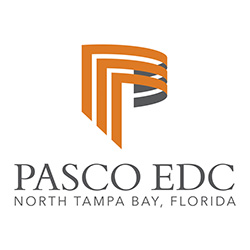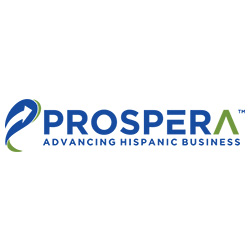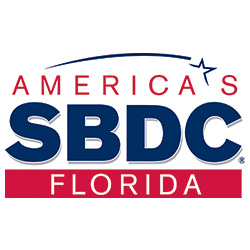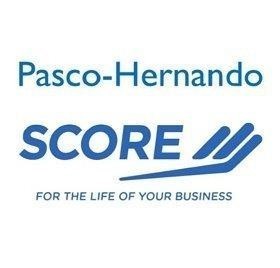Financing Options For Your Small Business
There are two types of financing: equity financing and debt financing. When looking for money, you must consider your company's debt-to-equity ratio. This ratio is the relation between dollars you have borrowed and dollars you have invested in your business. The more money owners have invested in their business, the easier it is to obtain financing.
If your firm has a high ratio of equity to debt, you should probably seek debt financing. However, if your company has a high proportion of debt to equity, experts advise that you should increase your ownership capital (equity investment) for additional funds. This will prevent you from being over-leveraged to the point of jeopardizing your company's survival.
Equity Financing
Equity financing (or equity capital) is money raised by a company in exchange for a share of ownership in the business. Ownership accounts for owning shares of stock outright or having the right to convert other financial instruments into stock. Equity financing allows a business to obtain funds without incurring debt, or without having to repay a specific amount of money at a particular time.
Most small or growth-stage businesses use limited equity financing. Equity often comes from investors such as friends, relatives, employees, customers, or industry colleagues. The most common source of equity funding comes from venture capitalists. These are institutional risk takers and may be groups of wealthy individuals, government-assisted sources, or major financial institutions. Most specialize in one or a few closely related industries.
Debt Financing
Debt financing means borrowing money that must be repaid over a period of time, usually with interest. Debt financing can be either short-term, with full repayment due in less than one year, or long-term, with repayment due over a period greater than one year. The lender does not gain an ownership interest in the business, and debt obligations are typically limited to repaying the loan with interest. Loans are often secured by some or all of the assets of the company. In addition, lenders commonly require the borrower's personal guarantee in case of default. This ensures that the borrower has a sufficient personal interest at stake in the business.
Obtaining capital for your business can come from a variety of sources, and the right one for your business will depend on your specific situation and the industry you are in. Loans can be obtained from many different sources, including banks, savings and loans, credit unions, commercial finance companies, and State and local governments. Family members, friends, and former associates are all potential sources, especially when capital requirements are smaller.
Traditionally, banks have been the major source of small business funding. The principal role of banks includes short-term loans, seasonal lines of credit, and single-purpose loans for machinery and equipment. Banks generally have been reluctant to offer long-term loans to small firms. The SBA has guaranteed lending programs which encourage banks and non-bank lenders to make long-term loans to small firms by reducing their risk and leveraging the funds they have available.
Financing options available include:
Pasco EDC SMARTstart Microloan 
Short‑term, fixed rate, fixed payment loans to start‑up, newly established, and growing small businesses. Proceeds of loans may be used for working capital, inventory, supplies, furniture, fixtures, machinery and/or equipment. In no case shall the proceeds be used to purchase real estate.
Conventional Financing
Banks have been the traditional source of business lending, which include short and long term loans, lines of credit, and single purpose loans for machinery and equipment. The traditional “debt financing” is paid with interest over a period of time. Banks usually require a loans to be secured by assets of the company and in most cases require a personal guarantee
Many local banks and credit unions can provide funding for growing companies, including the following Pasco EDC investors:
- Bank of America
- BB&T
- Centennial Bank
- First National Bank of Pasco
- MidFlorida Credit Union
- Midwest Regional Bank
- Patriot Bank
- Republic Bank
- Suncoast Credit Union
- SunTrust Bank, Nature Coast
- Synovus Bank
- Wells Fargo
Small Business Administration (SBA) Programs
SBA offers a variety of loan programs for very specific purposes. Take some time to study the programs described in this section, to see if you qualify to participate.
General Small Business Loans: 7(a) 
The 7(a) Loan Program is SBA’s primary program to help start-up and existing small businesses obtain financing when they might not be eligible for business loans through normal lending channels. SBA itself does not make loans, but rather guarantees a portion of loans made and administered by commercial lending institutions.
7(a) loans are the most basic and flexible, since financing can be guaranteed for a variety of general business purposes, including working capital, machinery and equipment, furniture and fixtures, land and building (including purchase, renovation and new construction), leasehold improvements, and debt refinancing (under special conditions).
Microloan Program 
The Microloan program provides loans up to $50,000 to help small businesses and certain not-for-profit childcare centers start up and expand. The average microloan is about $13,000.
The U.S. Small Business Administration provides funds to specially designated intermediary lenders, which are nonprofit community-based organizations with experience in lending as well as management and technical assistance. These intermediaries administer the Microloan program for eligible borrowers.
Real Estate & Equipment Loans: CDC/504 
The CDC/504 Loan Program provides financing for major fixed assets such as: purchasing land and improvements, including existing buildings, grading, street improvements, utilities, parking lots and landscaping; construction of new facilities, or modernizing, renovating or converting existing facilities; or purchasing long-term machinery and equipment.
The 504 Program cannot be used for working capital or inventory, consolidating or repaying debt, or refinancing.
Disaster Loans 
SBA provides low-interest disaster loans to businesses of all sizes, private non-profit organizations, homeowners, and renters. SBA disaster loans can be used to repair or replace the following items damaged or destroyed in a declared disaster: real estate, personal property, machinery and equipment, and inventory and business assets.






